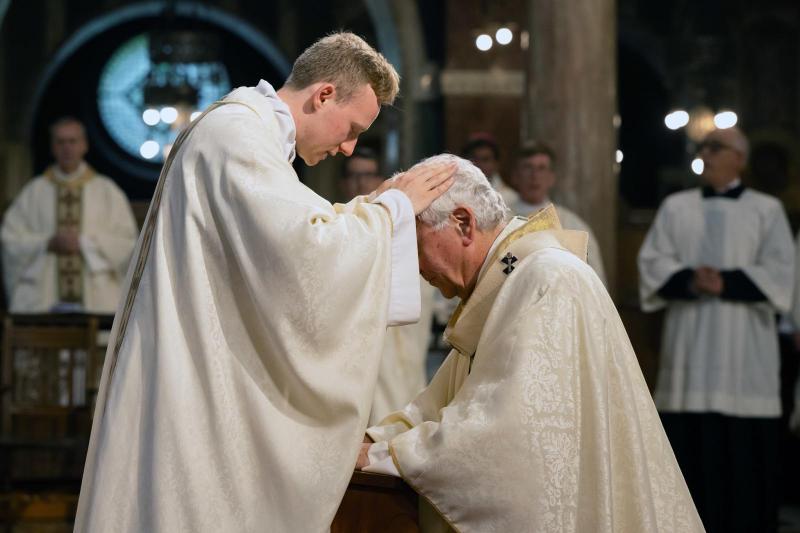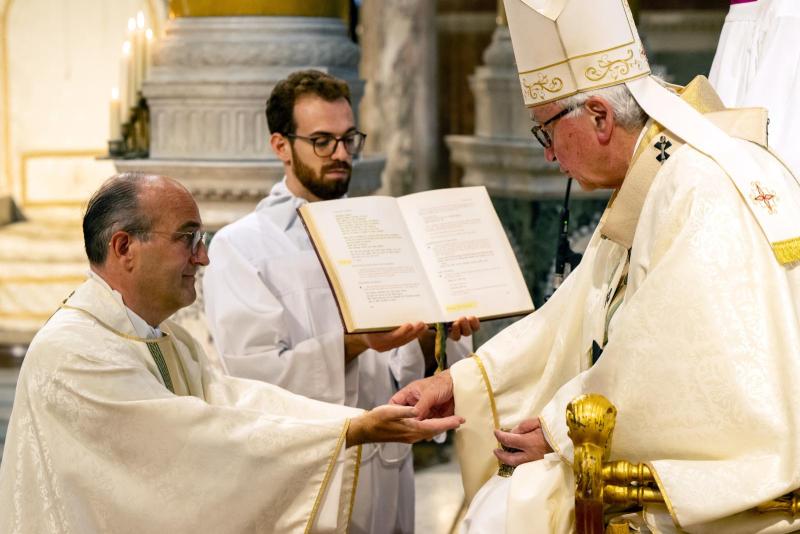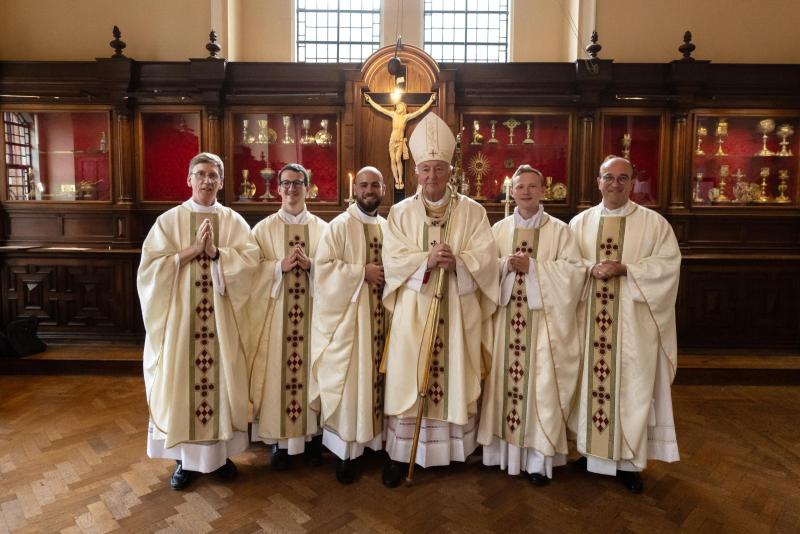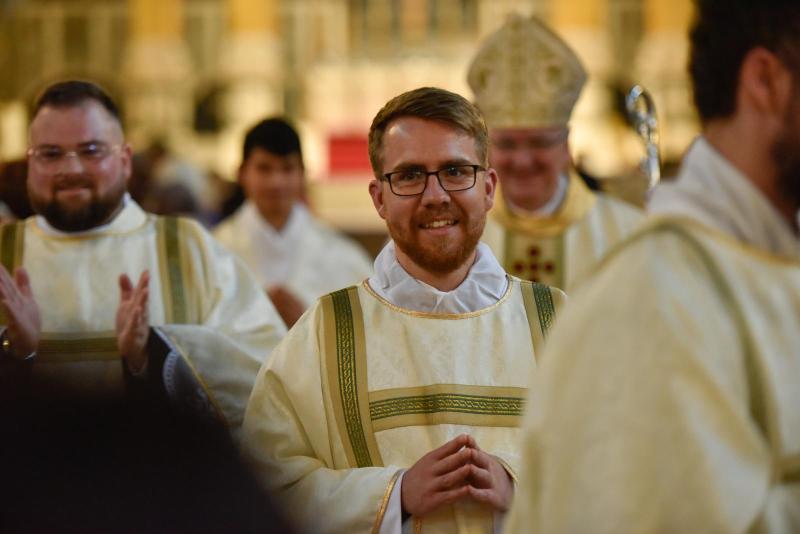There is an urgent need to look to the future and be alert for good men of faith in our parishes who would be able and generous enough to respond to a diaconal vocation. We need to pray for such vocations and then actively seek out potential candidates.
Any good Catholic man from thirty onwards who is capable of carrying out his family duties, holding down his job and, in addition, is capable of giving the time necessary to enter into the diaconal formation programme is potentially a suitable candidate. An inability to offer much time in the short term to church work (e.g. because of family and work commitments) need not be a deterrent to choosing men who can give some time and otherwise seem well suited to diaconal ministry. Sowing the seeds of a vocation is important, for when work and family commitments have diminished, the seed sown some years back may begin to flourish. Often the best candidates are those who first considered the possibility of a diaconal vocation because the priest or some other member of the parish community suggested it to them.
• The candidate must be intelligent enough to follow a normal course of studies without being unduly weighed down by it, healthy enough to carry out the duties of a deacon, with the sort of generosity of character that is still open to being formed, and with a soundness and stability of character that invites trust.
• He must have the right intention – to model himself on Christ the Servant who came not to be served but to serve.
• He must be accepting of the call of the Church – that he be willing to put himself in the hands of the bishop and those the bishop has chosen to carry out the discernment and formation process. No one can claim the right to be ordained. His desire to be ordained is never sufficient in itself; rather he must wait on the decision of the Church.
It normally takes a minimum of one year from the time the Director for the Permanent Diaconate is given a candidate’s name to the time that person is presented to the diocesan interview board. If he is perceived as having a possible vocation and accepted for the Diaconate Formation Programme, it will normally take another four years before he is ordained as a deacon.
Minimum Admission Requirements
An applicant must:
a) be a baptised man who is confirmed and has received his first Holy Communion;
b) have been a Catholic for a minimum of five years;
c) be legally a permanent UK resident;
d) be at least 31 at the time of admission to the Formation Programme;
e) normally be no more than 60 by the time he is due for ordination;
f) enjoy good physical and mental health with no condition that would impede his ministry;
g) have the necessary ability to complete the formation programme;
h) be reasonably financially secure;
i) understand that permanent deacons who are employed or who have been employed are bound by Canon Law to support themselves from their own funds; (The diocese will meet the cost of the formation programme and reimburse the candidate for travelling expenses.)
j) be a parishioner domiciled in a parish within the Diocese for normally at least 3 years.
k) if single, have a settled stable life with a good reputation within the community. He must fully understand the charism of celibacy. He must understand that ordination would mean a life-long commitment to celibacy;
l) if married, to have been validly married for at least 5 years;
m) should his wife predecease him, be willing in normal circumstances to remain celibate for the rest of his life;
n) have the full support and consent of his wife, her consent expressed in a handwritten letter accompanying his application;
o) enjoy with his family a good reputation within the community;
p) be able to give the necessary time to both the formation programme and the diaconal ministry without it being detrimental to his family or working life;
q) be presently active and accepted within the Church and parish community;
r) be willing to undergo the diocesan formation programme and be involved in on-going formation after ordination;
s) be willing to make a life-long commitment to serve the Church according to the model of Christ who came not to be served but to serve;
t) be willing to promise obedience to the Archbishop and his successors and be willing to accept any pastoral assignment that may be given to him;
u) be highly recommended by his parish priest or those who have worked with him in ministry;
v) be willing to undergo psychological assessment as to his suitability and to undergo all checks required by the Diocesan Child Protection Policy prior to formation;
w) be willing to undergo a full medical examination;
x) be orthodox both in belief and practice, and be willing to take the Oath of Fidelity and make a profession of faith according to the formula approved by the Apostolic See;
y) be dedicated to Our Lord in the Eucharist;
z) above all he must be a man of faith and prayer.
Taken from 'The Permanent Diaconate in the Diocese of Westminster – A Handbook' (2009)




